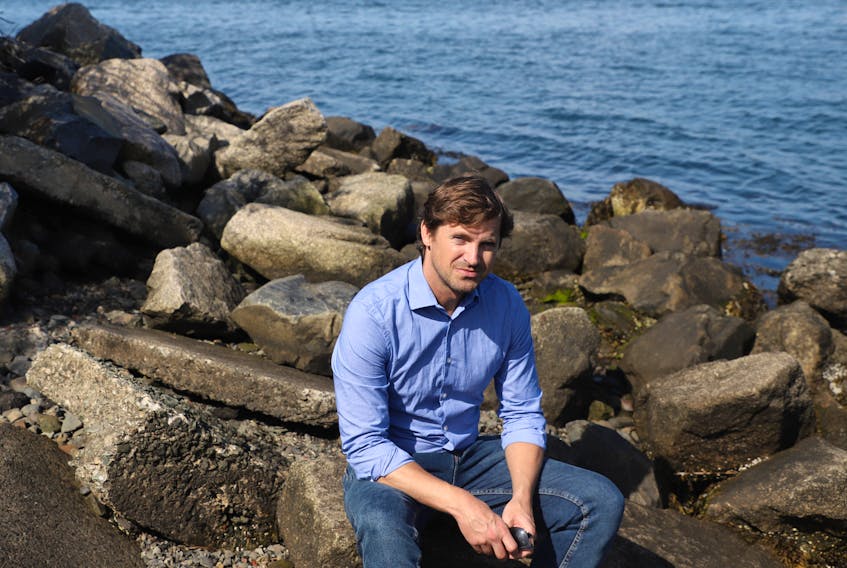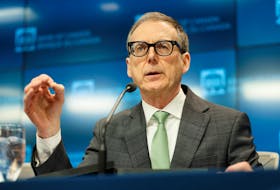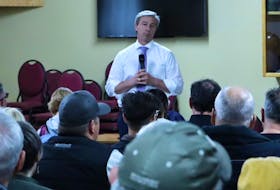A World Wildlife Fund report says human impacts have contributed to an average 68 per cent decline in global biodiversity among monitored species.
Derek Tittensor, an associate professor in the department of biology at Dalhousie University, is one of more than 125 researchers who contributed to WWF's Living Planet 2020, released Wednesday.
Tittensor said the report, released every two years, monitors changes in the world's wildlife populations, particularly mammals, birds, fish, reptiles and amphibians. Over the past 50 years, they've accumulated data from almost 21,000 populations and more than 4,000 species, he said.
Of course there is natural variability in populations in different species in different parts of the world, but on average there has been about a two-thirds decline in abundance of monitored populations since 1970, Tittensor said.
“Humans and human activities are the driver of these declines in wildlife that we see and on land,” he said in a telephone interview on Wednesday afternoon. “The primary driver is land usage, and on the ocean, it's over-fishing, over-exploitations, but there are very numerous impacts layered over top of one another, so it's not just those. Terrestrially, there's also pollution, and hunting, and forestry and urban expansion and infrastructure.”

All of these cumulative impacts basically fragment and cause the decline of natural habitats followed by the populations of organisms that live in those habitats, he said
“My role in this report was to write about some of the pressures on the ocean environment,” the marine biologist said. “As well as over-fishing, there's also pollution. Climate change is having increasingly strong effects. The effects are already evident but they will become more severe, so that's one upcoming impact that's only going to grow. But things like coastal development, infrastructure, pollution can be anything from heavy metals to plastics, nutrient pollution, invasive species – all of these things can have an impact on marine populations.”
He also said that we can't forget that some of the impactful activities like agriculture and fishing are also incredibly important for feeding the human population, so we need to bear that in mind and the contributions of these activities both economically and culturally.
“All of these important developments associated with many of these activities but we can't ignore the fact that the natural world is deteriorating based on our use and we need to manage our impacts more effectively, and really much better integrate our impacts on the natural world into our economics and our sustainable development.”
COVID-19 is an interesting example of human effects, Tittensor said.
“Firstly, there's been recent evidence that continued destruction and fragmentation of ecosystems is contributing to the rise in infectious, zoonotic diseases that come from wildlife populations, so in fact our impact on the natural world have all of these effects that we might not necessarily anticipate, but even things like disease transmission and rates of disease transmission are affected.
“On the optimistic side, I think … COVID has been an incredible challenge and has brought a lot of suffering, of course, but it has shown that as a society, (when) we're really motivated to deal with an issue, we can respond and we can make drastic changes.”
The report calls for a return to balance in human interaction with the natural world through an effort to stop using up resources faster than they can be regenerated. It calls for increased conservation efforts in concert with development of sustainable agricultural production and trade as well as sustainable consumption efforts with less waste and a transition to diets lower in animal products.
“We can make these changes,” Tittensor said. “And again I want to emphasize that, obviously, making sure that people have enough to eat and are not malnourished, and getting all the nutrients that they need is crucial, but we can do that in a way that helps maintain the integrity of our natural world.”
Shifting policies to build post COVID recoveries around green principles like renewable energy and effective transportation infrastructure is another focus Tittensor would like to see.
“I think it's perfectly feasibly to, for example, move harmful subsidies from fossil fuels and put them into renewables, so your net spend and your net economic cost and benefit may not change, you're just changing how you allocate those,” he said.
“And I think we can follow those pathways. Obviously there will be entrenched interests that don't want to go down that route, but I think that the real and a growing feeling that we do need to make significant changes but it needn't come at the cost of jobs. I think we can do it in a way that hits both of our targets in terms of the economy and in terms of sustainable environment at once.”









